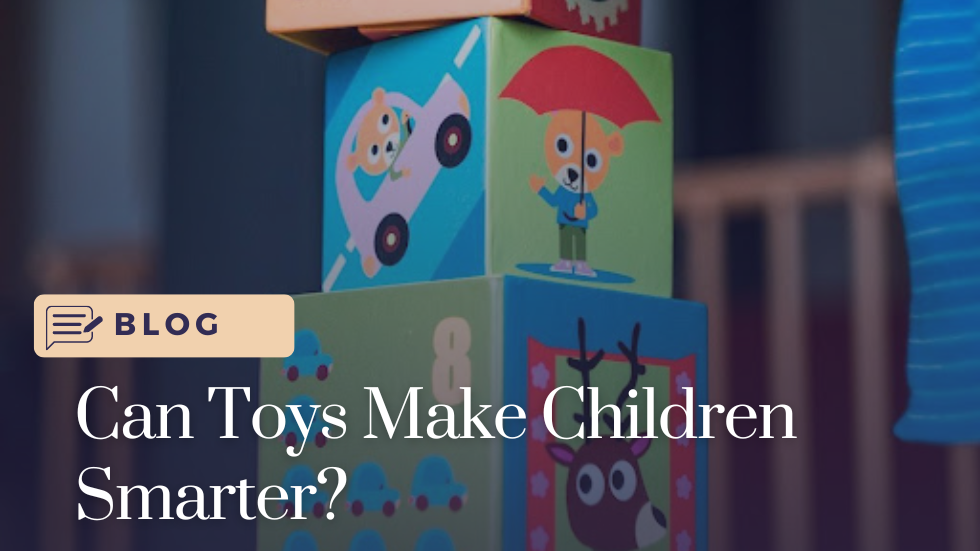Toys play a pivotal role in a child’s development and growth. It’s no wonder that there’s a buzz around educational toys, but do they really work? And, if so, how?
Parents are rightfully asking questions, and we’ll do our best to answer them. In this article, we’re going to examine how educational toys impact a child’s cognitive development and explore the various types of toys available in the market today, including some of the top sellers.
Benefits of Educational Toys
Studies have shown that playing with educational toys can have a positive impact on children's intelligence and learning. For instance, puzzles and building sets can improve a child's problem-solving skills, spatial awareness, and fine motor skills. Similarly, educational games can enhance a child's memory, reasoning, and strategic thinking.
Here are some of the key skills that are enhanced by using educational toys and help children learn and grow:
- Spatial awareness
- Problem-solving skills
- Critical thinking
- Fine motor skills
- Memory
- Concentration
- Reasoning
- Hand-eye coordination
- Musical abilities
- Mathematics
- English
How Types of Educational Toys Help Children
Below, we’ve documented how each type of educational toy can help a child’s learning development.
Puzzles
One of the most popular educational toys is the puzzle. Puzzles come in different shapes and sizes, making them suitable for children of different ages. They can range from simple jigsaw puzzles to complex 3-D puzzles that require children to think critically and spatially.
Solving puzzles helps children develop critical thinking skills and improve their problem-solving abilities.
Building Sets
Building sets, such as LEGO, are another popular educational toy. They allow children to engage in imaginative play and encourage creativity and problem-solving. Building sets also help children develop fine motor skills and improve hand-eye coordination.
Building sets can also be used to teach children about basic engineering and design principles. As children experiment with different configurations of pieces, they can learn about balance, stability, and other crucial concepts.
This can help them develop an interest in science, technology, engineering, and math (STEM) fields, which are increasingly demanding in today's job market.
Another benefit of building sets is that they can promote teamwork and collaboration. Children can work together to build larger structures or models, which can help them develop communication skills and learn to work effectively with others.
Games
Educational games, such as memory games and strategy games, can also be a great way for children to develop cognitive skills. Memory games, for instance, can improve a child's memory and concentration. Strategy games, on the other hand, help children develop critical thinking skills, improve problem-solving, and teach them to think ahead.
Games such as chess, checkers, and other board games require children to think ahead, plan and consider multiple possibilities before making a move. These games can also help children develop their decision-making skills and learn to evaluate the consequences of their choices.
By playing strategy games, children can develop their ability to analyse and solve problems, which can be applied to other areas of their lives.
By playing strategy games, children can develop their ability to analyse and solve problems, which can be applied to other areas of their lives.
Video Games
Video games can offer a range of benefits to players, including:
Improved cognitive function: Video games can help improve cognitive function in areas such as attention, memory, and decision-making. This is because games often are fast-paced, present surprises and, at times, require multiple attempts to complete.
Stress relief: Video games can be a great way to unwind and relax after a long day. They provide a safe and engaging way to escape from stressors and offer a sense of control and achievement.
Social interaction: Many video games involve social interaction, either online or offline. This can help players develop communication skills, build friendships, and even improve teamwork and cooperation.
Science Kits and Musical Instruments
In addition to puzzles and building sets, educational toys such as science kits and musical instruments can also play a crucial role in a child's cognitive development.
Science kits, for instance, can help children develop an interest in science and improve their scientific reasoning and problem-solving skills. Musical instruments, such as a xylophone, can enhance a child's musical skills, fine motor skills, and hand-eye coordination.
Toys That Help With Speech
Some children take longer than others to start developing their speech ability. That’s just the way it is. There are toys that can help accelerate children’s speech. Here are some:
- Flashcards
- Wordbooks
- Speak and learn soft toys
- Language development board games
How do toys help Cognitive Development?
Toys help with cognitive development by providing opportunities for exploration, problem-solving, and creativity. They stimulate the senses and help them learn about the world around them.
What are the benefits of toys for kids with disabilities?
Toys can be especially helpful for children with disabilities, as they can provide a range of benefits and opportunities for learning and development.
For children with physical disabilities, toys that are adapted or modified to suit their needs can provide access to fun and engaging activities that might otherwise be difficult or impossible.
It's important to choose toys that match a child's interests and skills, and to provide appropriate support and encouragement during playtime. With the right toys and support, children with disabilities can enjoy the same benefits of play and learning as any other child.
Educational Toys: The Bottom Line
Toys can be valuable tools for children's development, but they alone do not make children smarter. Rather, it is the way children interact with toys that can enhance their cognitive and emotional growth.
Toys should be used as a complement to traditional educational methods, such as reading, writing, and arithmetic. Additionally, it is important to choose educational toys that are age-appropriate and relevant to the child's developmental stage.

